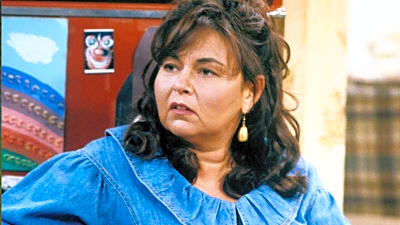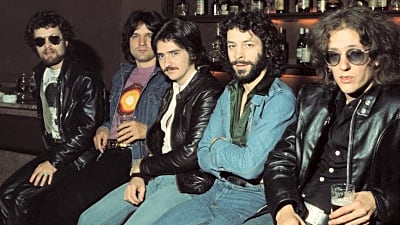- Home
- Quizzes
- My Quiz Activity
- Newsletters
- MY FAVORITES
- Add Sports/Teams
- SPORTS
-
NFL
- NFL Home
- Arizona Cardinals
- Atlanta Falcons
- Baltimore Ravens
- Buffalo Bills
- Carolina Panthers
- Chicago Bears
- Cincinnati Bengals
- Cleveland Browns
- Dallas Cowboys
- Denver Broncos
- Detroit Lions
- Green Bay Packers
- Houston Texans
- Indianapolis Colts
- Jacksonville Jaguars
- Kansas City Chiefs
- Las Vegas Raiders
- Los Angeles Chargers
- Los Angeles Rams
- Miami Dolphins
- Minnesota Vikings
- New England Patriots
- New Orleans Saints
- New York Jets
- New York Giants
- Philadelphia Eagles
- Pittsburgh Steelers
- San Francisco 49ers
- Seattle Seahawks
- Tampa Bay Buccaneers
- Tennessee Titans
- Washington Commanders
-
MLB
- MLB Home
- Athletics
- Arizona Diamondbacks
- Atlanta Braves
- Baltimore Orioles
- Boston Red Sox
- Chicago White Sox
- Chicago Cubs
- Cincinnati Reds
- Cleveland Guardians
- Colorado Rockies
- Detroit Tigers
- Houston Astros
- Kansas City Royals
- Los Angeles Angels
- Los Angeles Dodgers
- Miami Marlins
- Milwaukee Brewers
- Minnesota Twins
- New York Yankees
- New York Mets
- Philadelphia Phillies
- Pittsburgh Pirates
- San Diego Padres
- San Francisco Giants
- Seattle Mariners
- St. Louis Cardinals
- Tampa Bay Rays
- Texas Rangers
- Toronto Blue Jays
- Washington Nationals
-
NBA
- NBA Home
- Atlanta Hawks
- Boston Celtics
- Brooklyn Nets
- Charlotte Hornets
- Chicago Bulls
- Cleveland Cavaliers
- Dallas Mavericks
- Denver Nuggets
- Detroit Pistons
- Golden State Warriors
- Houston Rockets
- Indiana Pacers
- Los Angeles Clippers
- Los Angeles Lakers
- Memphis Grizzlies
- Miami Heat
- Milwaukee Bucks
- Minnesota Timberwolves
- New Orleans Pelicans
- New York Knicks
- Oklahoma City Thunder
- Orlando Magic
- Philadelphia 76ers
- Phoenix Suns
- Portland Trail Blazers
- Sacramento Kings
- San Antonio Spurs
- Toronto Raptors
- Utah Jazz
- Washington Wizards
-
NHL
- NHL Home
- Anaheim Ducks
- Boston Bruins
- Buffalo Sabres
- Calgary Flames
- Carolina Hurricanes
- Chicago Blackhawks
- Colorado Avalanche
- Columbus Blue Jackets
- Dallas Stars
- Detroit Red Wings
- Edmonton Oilers
- Florida Panthers
- Los Angeles Kings
- Minnesota Wild
- Montreal Canadiens
- Nashville Predators
- New Jersey Devils
- New York Islanders
- New York Rangers
- Ottawa Senators
- Philadelphia Flyers
- Pittsburgh Penguins
- San Jose Sharks
- Seattle Kraken
- St. Louis Blues
- Tampa Bay Lightning
- Toronto Maple Leafs
- Utah Mammoth
- Vancouver Canucks
- Vegas Golden Knights
- Washington Capitals
- Winnipeg Jets
- NCAAF
- NCAAM
- Olympics
- Boxing
- Entertainment
- Lifestyle
- Golf
- MMA
- Soccer
- Tennis
- Wrestling
- Sports Betting
- More Sports
- RESOURCES
- My Account
- YB on Facebook
- YB on Twitter
- YB on Flipboard
- Contact Us
- Privacy Policy
- Terms of Service

The 25 most memorable one-album wonders
Everywhere you look, there are lists that archive and celebrate the "one-hit wonders" of the world. There are even cherished places for great acts that only dropped one album. Yet some artists managed to put out one album that's so popular, so game-changing, and so beloved that everything they release after is compared to that one iconic full-length. These are albums not defined by a single mega-hit (otherwise Joan Osbourne's "Relish" could easily fit in here) but whose legacies are indisputable, almost in spite of everything that came before or after.
Macklemore & Ryan Lewis "The Heist" (2012)

When "Thrift Shop" started hitting radio waves seemingly out of nowhere, nobody knew what to make of rapper Ben Haggerty (Macklemore) and DJ/producer Ryan Lewis. Their sound was funny, off-kilter, and astoundingly catchy, and after months of a slow-burn rollout, "Thrift Shop" became a global chart-topper, eventually going Diamond. Tracks like "Same Love" and "Can't Hold Us" kept their popularity surging to the point where the group won the Best Rap Album Grammy over Kendrick Lamar, Kanye West, Jay-Z, and Drake. Their fame was so sudden and overpowering that it was no wonder the group took four years to come out with an underwhelming follow-up, which bitterly reflected their popularity. Unsurprisingly, fans rejected this sophomore release, causing the duo to go on hiatus starting in 2017.
Gotye "Making Mirrors" (2011)

In the early 2000s, Belgian-Australian multi-instrumentalist Gotye (the nom de plume of Wally De Backer) gained a following for his elaborately-constructed albums of deeply emotional pop music. He was gaining popularity in Australia, and his dramatic song "Hearts a Mess" started gaining international attention. Yet when Gotye unleashed his 2011 album "Making Mirrors", it was anchored by the song "Somebody That I Used to Know", a duet with Kimbra that sounded like nothing else on the radio, eventually ranking #1 in virtually every country on the planet. That song's success pushed fans towards other celebrated favorite tracks like "I Feel Better" and the Beck-like rock of "Easy Way Out", but after Gotye was handed the Grammy for Record of the Year by none other than his idol Prince, it was clear that he had peaked. The shy-seeming Gotye winced at the harsh glare of the international spotlight, and while "Making Mirrors" was this third full-length, he has yet to release a fourth, seemingly much more content doing one-off collaborations and archival work. Some still pine for new material from De Backer, but nearly a decade later, our beloved quirk-pop icon took the easy way out by disappearing completely.
Sisqó "Unleash the Dragon" (1999)

The R&B boy group Dru Hill was making some serious waves in the late '90s, scoring a string of Top Ten hits and getting primo soundtrack placement with "How Deep is Your Love" landing on the "Rush Hour" soundtrack and their feature on Will Smith's "Wild Wild West" topping the charts. Yet the early 2000 release of "Thong Song" changed the DNA of pop music. A solo single from eccentric Dru Hill frontman Sisqó, this oft-quoted banger instantly shot the Platinum-haired vocalist to pop stardom, with his album "Unleash the Dragon" going five times platinum. (Interestingly, despite the lingering cultural legacy of "Thong Song", that banger only reached #3 in the U.S., leaving the forgotten piano ballad "Incomplete" as Sisqó's only #1.) Despite his solo hits and even a return to Dru Hill proper, the demand for new Sisqó material dropped significantly, leaving his sophomore album "Return of the Dragon" flounder and his subsequent material failing to chart. Sadly this dragon has gone into hibernation.
Christopher Cross "Christopher Cross" (1979)
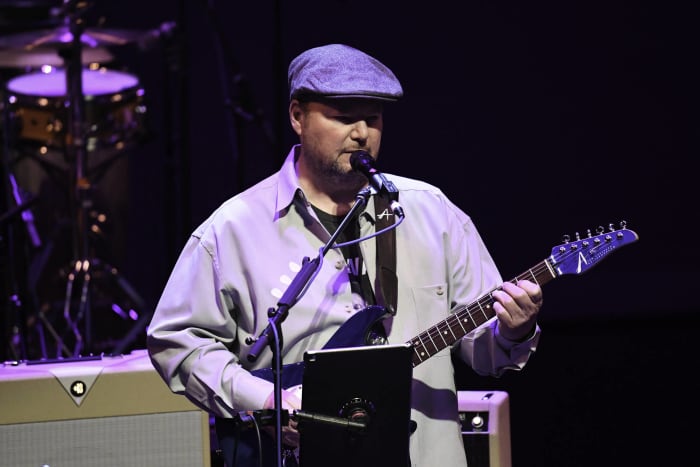
In retrospect, Christopher Cross's success might seem like a fluke, but in the moment, he was a monster of soft rock. The one-two punch of singles "Ride Like the Wind" and "Sailing" sent the band known as Christopher Cross (fronted by Christopher Charles Geppert, mind you) to the top of the charts, stamping "soft-rock" as a known quantity and then sweeping the four major Grammy categories the following year. He then went right on to win an Oscar for "Arthur's Theme". It's the kind of rush of accolades and success that's so sudden there's almost nowhere to go but down, which is exactly what happened to Cross. His sophomore record "Another Page" sold a tenth of what his debut did, and each subsequent full-length performed worse than the last. He seems to be doing just fine, forming his own record label in the mid-2010s, but his legacy will forever be wrapped up in that opening salvo of softness.
Ace of Base "The Sign" (1993)
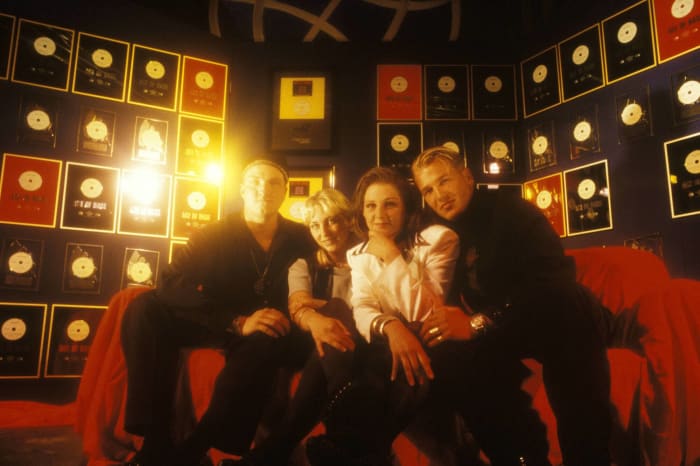
Before Max Martin was writing hits for Britney Spears, *NSYNC, Taylor Swift, and The Weeknd, the pop-savant was working under the tutelage of the Swedish pop legend Denniz Pop. Pop loved himself a great melody and a hooky production, and his fingerprints are all over the debut album of the dance-pop outfit Ace of Base. Originally released as "Happy Nation" and containing the song "All That She Wants", the band's U.S. record label delayed the release to add more songs, one of which was "The Sign". Out the gate, the group scored three Top Five hits in the States, as synthy renditions of light reggae rhythms ended up being a breakthrough formula, making the group omnipresent for years. Yet because their sound became so oversaturated, their sophomore effort, "The Bridge", did a fraction of the numbers that "The Sign" did. A cover of Bananarama's "Cruel Summer" scored them a final Top Ten stateside, but when Denniz Pop died of stomach cancer at the tragic age of 35, Ace of Base didn't have much gas left in their tank. They saw the sign, alright, and it was a stop sign.
Evanescence "Fallen" (2003)

At the start of 2003, critics were already writing the obituary for the subgenre known as "nu-metal." They weren't wrong, as Limp Bizkit's fratboy antics and Papa Roach's pointed whining were losing favor on rock radio, save for the commercial bright spots that were Linkin Park and a new group out Little Rock, Arkansas named Evanescence. Featuring the dramatic vocal stylings of Amy Lee, Evanescence stood out even on their first single, "Bring Me to Life", achieving instant success that was only furthered when the piano ballad "My Immortal" dropped soon after. Goth-y, angsty, but with a real heart and perspective, Evanescence garnered praise for breathing life into a tired genre, even scoring a Grammy nomination for Album of the Year for their dramatic take on the genre. All eyes were focused on whether Lee could avoid the dreaded sophomore slump, but unfortunately, second album, "The Open Door", couldn't muster the same levels of hype. The band took a long time between albums, which didn't help keep their commercial prospects afloat, as any new recordings would be compared to that Diamond-selling debut. The band put out an album as recently as 2021, proving that there's still an audience for their grandeur-driven brand of hard rock, but the bitter truth is that they will never reach the same highs as "Fallen".
B.o.B. "B.o.B Presents: The Adventures of Bobby Ray" (2010)
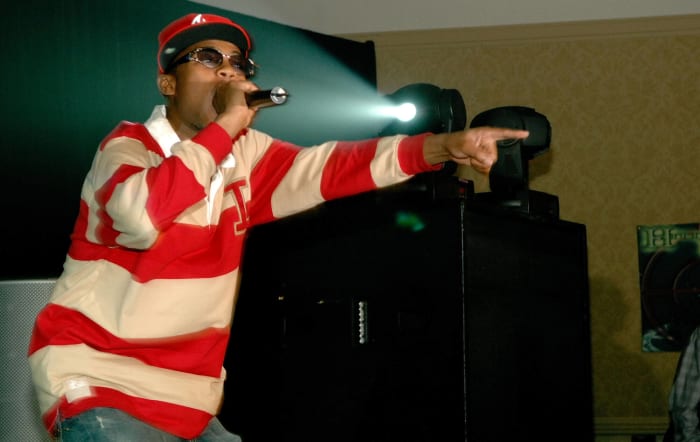
When the laboriously-titled "B.o.B Presents: The Adventures of Bobby Ray" dropped in early 2010, it felt like rap music's newest star emerged out of the ether. While B.o.B. had been grinding through EPs and mixtapes for years, it didn't hurt that his first commercial single was "Nothin' on You", a catchy track that featured the first on-record of appearance of a bright young songwriting/producing talent named Bruno Mars. It shot to #1, as did B.o.B.'s debut, becoming only a handful of debut albums that started in the Billboard penthouse. Singles like "Airplanes" featuring Paramore's Hayley Williams and "Magic" featuring Weezer's Rivers Cuomo kept the record afloat for months, establishing B.o.B. as a rare pop-rap crossover success. Yet his sophomore record "Strange Clouds" couldn't replicate his debut's intrigue, even though it featured a collaboration with another on-the-rise talent named Taylor Swift. The hits dried up in short order, and a feud with Neil deGrasse Tyson over the shape of the earth (B.o.B. is convinced it is flat) turned the once-aspiring rookie into little more than a punchline. Guess he didn't have the magic in him.
Blues Traveler "four" (1995)

As the ska, big band swing, and Latin pop revivals of the late '90s proved, there's a time and place for every genre to shine, even if that genre is harmonica-driven jam-band blues rock. Blues Traveler, famously led by rapid-fire vocalist and acclaimed harmonica player John Popper, put out their debut album in 1990, and while touring and frequent appearances on "The Late Show with David Letterman" made their albums moderate-yet-consistent sellers, it was their fourth album that broke them through, with songs like "Run-Around" and "Hook" becoming instant radio staples. Even a re-release of their first song, "But Anyway", ended up making great fodder for the "Kingpin" soundtrack, but after that, the sales started to slip, and the band, while revered in jam circles, started playing to smaller and smaller audiences, still best known for their "four" era. In 2015, they released a collaboration with party-pop-rappers 3OH!3, and we honestly don't know what to do with that information outside of mentioning it here.
Interpol "Turn On the Bright Lights" (2002)

Following the horrific events of 9/11, the trajectory of music changed, as in the days, weeks, and months immediately after, rock music and violent imagery were all but ejected from the mainstream consciousness. Jimmy Eat World changed the name of their record, "Bleed American", Enya scored a surprise smash with "Only Time", and listeners gravitated towards more comforting media fare as they processed this tragedy. In the middle of 2002, New York post-rock outfit Interpol dropped their debut album "Turn On the Bright Lights", and it was an instant sensation. Brooding, propulsive, atmospheric, and sometimes even lightly humorous, it felt like a perfect album arriving at the perfect moment, setting the group for success as rock music's Next Big Thing™. Sophomore album "Antics" has its defenders and a dynamite single called "Evil", but the records that followed failed to turn fans on like "Bright Lights" did. The group cultivated a strong Latin American audience over their next several releases and still has a following, but fans and critics still cite "Bright Lights" as the group's true bright spot.
fun. "Some Nights" (2012)

There was a decent cult following for Nate Ruess' indie-rock group The Format from the early 2000s, but when that group ended, another one began: fun. With the help of multi-instrumentalists Andrew Dost and Jack Antonoff, the new trio scored some nice notices for their 2009 debut "Aim and Ignite", but their 2012 follow-up was one of those out-of-nowhere success stories that feels impossible in retrospect. That record's lead single, "We Are Young", shot straight to #1, brought even more attention to the already-beloved Janelle Monáe, and sold over 10 million copies. Songs like "Some Nights" and "Carry On" quickly turned into radio candy, and before long, this quirky trio took top Grammy prizes, including Best New Artist. Then as quickly as they shot to fame, it all ended with a 2015 Facebook post where the group insisted they weren't breaking up but just taking a break. Ruess duetted on a Pink chart-topper, Dost worked on some movie scores, and Antonoff went on to become one of the most in-demand pop producers of the new millennium, being nominated for the Producer of the Year Grammy four times over and winning twice after helming albums for the likes of Lana Del Rey, Taylor Swift, and St. Vincent. While fun. had its moment in the sun, its members seem to have happily carried on from that one big full-length.
Fine Young Cannibals "The Raw & The Cooked" (1989)
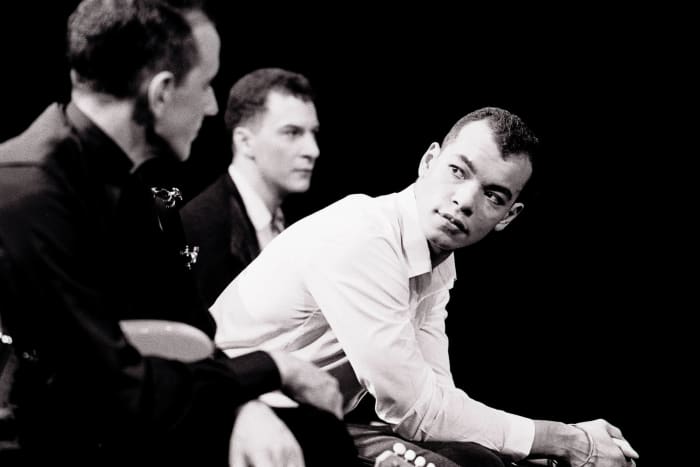
When you hear "Fine Young Cannibals", it's understandable that one's first thought is of "She Drives Me Crazy", the planet-conquering 1988 hit that defined that slick late-'80s sound while telegraphing the fuzz-guitar overdrive that would soon define early '90s radio hits. Yet if you feel like you've heard that song enough already, imagine what it was like back in the day: Fine Young Cannibals were inescapable, especially in the U.K., where they had a string of Top Tens. In the U.S., both "Crazy" and the retro throwback "Good Thing" both went #1, which in turn made FYC's sophomore set "The Raw & The Cooked" an absolute sensation. How big was it? It was raved about by critics, sold millions of copies, and even netted an Album of the Year nomination at the Grammys. Yet just as soon as people could spot the FYC "sound" out in the wild, the group broke up in 1992, leaving this mammoth smash of a record as their swan song. It drives you crazy just wondering what else they could've done.
Vertical Horizon "Everything You Want" (1999)

Alternative pop-rock outfits with crossover appeal were a dime a dozen in the '90s, and when Washington, D.C.'s Vertical Horizon started putting out music, their following was largely local. Yet their solid songs and slowly growing fanbase were enough to snag them a deal with RCA Records, who released their 1999 full-length "Everything You Want". The outfit's catchy, confident, and straightforward pop melodies struck a chord with radio audiences, and their track "Everything You Want" became an out-of-nowhere Billboard #1. Follow-ups "You're a God" and "Best I Ever Had" had VH1 video countdowns in a chokehold, but as quickly as they came, the band slid off their vertical. Follow-up record "Go" had some Adult Alternative support, but after that, it was diminishing returns for the group, whose most recent 2018 harkened back to their pre-"Everything You Want" LPs ... by failing to chart whatsoever.
Hootie & the Blowfish "Cracked Rear View" (1994)

It is alleged that when South Carolina's very own Hootie & the Blowfish were picking up steam for their distinct blend of jam-band sensibilities and heartland rock in the early 1990s, no label wanted them because all that was popular at the time was grunge. Atlantic took a chance, and whether intentional or not, Hootie's debut album "Cracked Rear View" was a brilliant piece of counter-programming to the flannel-clad scene, turning Hootie's debut into 1995's best-selling album. The band's not-so-secret weapon was frontman Darius Rucker, whose deep, rich voice carried a level of familiarity and comfort to it, which allowed the band to cross over with gigantic hits like "Hold My Hand", the hooky "Only Wanna Be With You", and "Let Her Cry". "Cracked Rear View" eventually got certified for shifting 20 million units in the United States, which left sophomore album "Fairweather Johnson" the impossible task of trying to recreate a fraction of that success. Make no mistake: it debuted at #1 and eventually shifted over three million copies, but it's hard to overcome a double-edged sword like radio oversaturation. Don't worry about the band too much, though: Rucker proved to be one of the rare soloists who pivoted to country and found immense success there.
Vanilla Ice "To The Extreme" (1990)

It's very easy to write off Vanilla Ice as a one-hit wonder for his Queen-biting hit "Ice Ice Baby", which has the notorious honor of being the first rap song to top the Billboard Hot 100. Yet despite his limitations as a rapper in the pop landscape, he broke through with other tracks like "Play That Funky Music" and the camp classic "Ninja Rap", endearing himself to a younger (and majority white) fanbase. He was widely disliked by critics and hip-hop purists but managed to move enough units that he was given his own film, 1991's "Cool As Ice", which is often regarded as one of the worst movies ever made. While his connection with Madonna kept him in the tabloids, it's hard to show a new side of yourself when purists have already dismissed you for being "soft." Ice's subsequent records leaned further and further into serious and less radio-friendly sounds, even going full nu-metal at some point. While he's used his fame to turn out a series of TV shows and media ventures, he's never been as famous as he was during his "To the Extreme" era.
Norah Jones "Come Away With Me" (2002)

Norah Jones' debut album came out in February of 2002, mere months after the 9/11 terror attacks when radio was still figuring out whether to play comforting songs or dare to put out anything even remotely edgy. Norah Jones, signed to historic jazz label Blue Note and the daughter of famed sitar master Ravi Shankar, made a record of pleasant, mid-tempo jazz-pop, replete with gentle originals and covers of established classics like Hank Williams' "Cold Cold Heart". It was an unassuming LP, but it connected with audiences instantly. "Come Away With Me" was a titanic smash, selling over 27 million copies worldwide and netting her every Grammy Award she was nominated for, even scoring the gong for Album of the Year. To say her success was unexpected was an understatement, but how do you even begin to follow it up? Sophomore album "Feels Like Home" gave more of the same with a slightly twangy-bent, even if it sold half of what "Come Away With Me" did. Knowing she would never replicate her past success, Jones spent the years following collaborating with unexpected artists (OutKast! Jack White! Green Day!) and even trying some rock-oriented genre detours. Two decades into her career, she may not move units like she used to, but she never let "Come Away With Me" fully define her, even if it's the thing most people know her for.
Jet "Get Born" (2003)

Australian throwback rockers Jet never got much love from critics, as their songs were often criticized for being photocopies of better-executed rock classics. Yet music critics don't make radio playlists, and as reductive as the boneheaded single "Are You Gonna Be My Girl" was, it was a breakthrough smash. In fact, Jet's debut album "Get Born" scored a litany of hits, from the rockers "Rollover DJ" and "Cold Heart Bıtch" to the Oasis-styled piano ballad "Look What You've Done". When it finally came time to write a follow-up album, lead single "Put Your Money Where Your Mouth Is" vastly underperformed, leaving Jet as little more than a one-album wonder. Don't worry too much about them, though: their three records have all gone Platinum in their homeland, albeit nowhere else. The simple explanation? This Jet just ran out of fuel.
Frankie Goes to Hollywood "Welcome to the Pleasuredome" (1984)
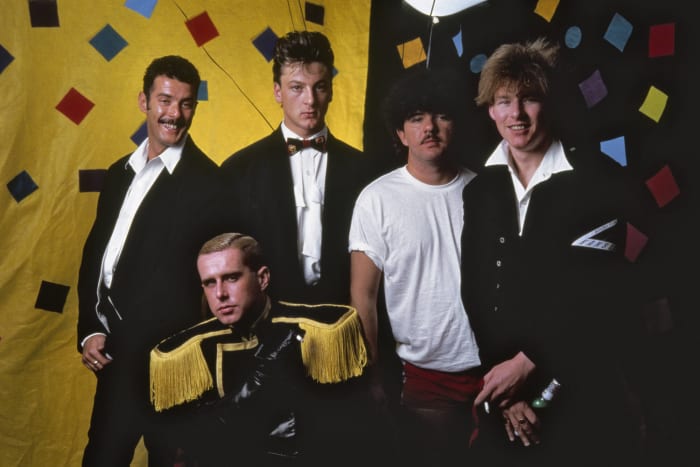
It's easy to see a list that includes Frankie Goes to Hollywood and think, "Weren't they just a one-hit wonder?" While "Relax" was truly a decade-defining pop anthem (that undoubtedly got a boost after the BBC banned it for being too controversial in their eyes), this band's first three hits went straight to the top of the U.K. charts, a feat previously achieved only by Gerry and the Pacemakers in 1963. While "Two Tribes" was an even more propulsive dance track than "Relax" was, the ballad "The Power of Love" showcased this U.K. outfit's artistic range, which no doubt helped propel them to a Best New Artist nomination at the Grammys in 1985. Yet after immense success and a growing queer fanbase (members Holly Johnson and Paul Rutherford both identified as gay), the group wanted to be taken more seriously on their follow-up album "Liverpool", which was widely panned for being overly dramatic and started showing tensions within the group dynamic, confirmed with them disbanding shortly after that and the group's old label getting in a bitter lawsuit over the band's solo ventures. Some of them found pockets of success, but not enough to buy them a Pleasuredome of their own. Weird sidenote: in the late '90s, an imposter group billing themselves as the "new" Frankie Goes to Hollywood tried touring under the band's name due to a tenuous connection with the group and featuring none of the original members. A music magazine expose quickly put a stop to that nonsense.
Neutral Milk Hotel "In the Aeroplane Over the Sea" (1998)

To be a successful band, writing great songs is an agreed-upon necessity. Yet truly great bands have one more layer on top of that: a narrative. Metallica keeps a guy on payroll to visit old studios they recorded at to look for session tapes and demos for future deluxe reissues, further embellishing the band's legacy. The Beatles have found new ways to refresh their importance on a near-yearly basis with some wild new ventures (a Cirque du Soleil show, a Peter Jackson documentary, etc.). While Neutral Milk Hotel's Jeff Mangum was no doubt happy making his weird and wild folk-rock records with the Athens, Georgia-based Elephant 6 collective, his sophomore record "In the Aeroplane Over the Sea", with its wild melodic swings and hypersexual lyrics, set the music press on fire, and before long the reserved Mangum found he wasn't a scene member so much as a generational spokesperson, which made him deeply uncomfortable.
He retreated from the public eye and put out barely any music in the decades that followed, which, as these things go, only embellished his legacy all the further as the genius who dropped an indie-rock masterpiece only to disappear. He didn't need the elaborate machines that Metallica or The Beatles had to stress his importance: his absence from the discourse forced his fans and the press to do all that work for him. While his debut "On Avery Island" has its defenders, Neutral Milk Hotel and "Aeroplane" are synonymous with contemporary independent music, whether Mangum likes it or not.
Gnarls Barkley "St. Elsewhere" (2006)
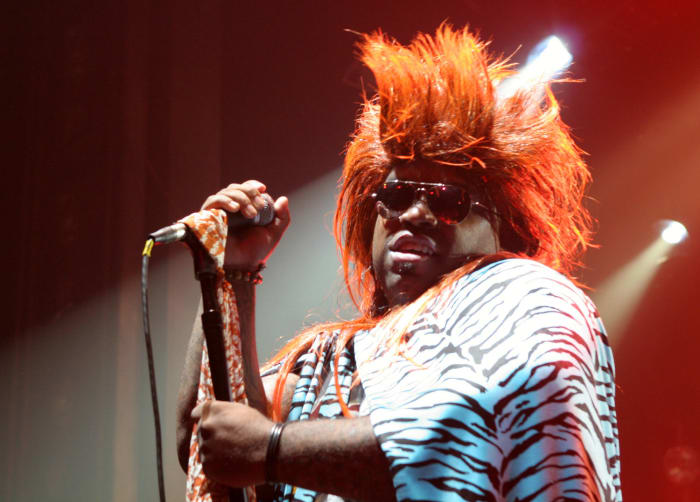
On paper, Gnarls Barkley seemed like a super-fun side-project. You have Goodie Mob frontman-turned-psychedelic-soul-singer CeeLo Green in one corner and famed remix-DJ-turned-rap-producer Danger Mouse in the other. While it seemed like they could craft a fun song or maybe even an EP together, few expected a full-length album of wild experiments. Lead single "Crazy" was anticipated with so much buzz it got leaked months before its release, but to no detriment: it became the U.K.'s first single to top the charts based on downloads alone. The resulting album, "St. Elsewhere", featured colorful production pushed through rap/pop/soul idioms, using obscure samples, deft verses, and even featured an unexpected Violent Femmes cover. It was lightning in a bottle, so it's understandable why sophomore release "The Odd Couple" felt like a dithering follow-up. "Run (I'm a Natural Disaster)" tried a more energetic spin on the "Crazy" formula, but outside of the gorgeously-rendered ballad "Who's Gonna Save My Soul", critics and fans weren't as crazy about the group's legendary debut. Each member has since focused their attention elsewhere, while fans still best know them for "St. Elsewhere".
KT Tunstall "Eye to the Telescope" (2004)

At any point in pop music history, there will always be room for a guitar-strumming female singer-songwriter who electrifies Top 40 radio. From Sheryl Crow to Michelle Branch, the spot always seems to be open, and in 2005, it was filled by KT Tunstall. The Scottish singer had a sharp style and a powerful voice, and a performance of her song "Black Horse and the Cherry Tree" on a TV show was all it took for it to start inching its way onto the radio and then get covered by contestants on singing competition TV shows. Her song "Suddenly I See" was also a pure rush of carefree guitar pop, and before long it seemed that Tunstall might turn into a regular hitmaker. While she always found chart wins in the U.K., her time in the sun came and went very quickly, as her subsequent records started debuting at lower and lower placements in non-U.K. countries, whittling her audience down to nothing but the hardcore. It's a shame, too, because while Tunstall is largely known for that one smash album, her songs still hold up nearly two decades later.
The Game "The Documentary" (2005)
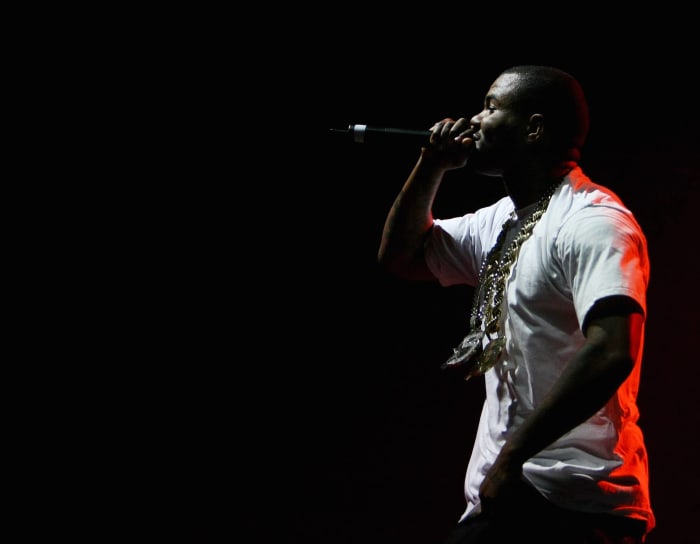
Years removed from his peak, it's hard to fathom just how omnipresent 50 Cent was when he broke through. Aided by the beats of Dr. Dre, he was an unstoppable force of charisma, and everything he touched went multi-Platinum. This extended to his association with Compton's own The Game, who was also signed to Dr. Dre's Aftermath Records and debuted right away with some huge pop-rap crossovers in the form of hits "How We Do" and "Hate It Or Love It". The only catch? Both of those songs prominently featured 50 Cent, and as The Game found out later in his career when he's not joined by a guest like Lil' Wayne or Drake, his commercial prospects flounder. For all the success that The Game achieved with "The Documentary", he never achieved those heights again, still making records that sold but never garnering mainstream attention unless it's for his increasingly-bizarre rivalry with Eminem, Dr. Dre, and Curtis "50 Cent" Jackson. On a 2011 track, "The City", The Game claimed he was a Top Five MC next to Jay-Z and Tupac without a trace of irony but if he looked at his own sales figures since "The Documentary", he'd quickly realize that isn't true.
Justice "Cross" (2007)

When the Big Beat movement happened in the late '90s, it caught quite a fandom for the way it married acid house beats to alternative rock aesthetics. In short, it consisted of club tracks that thought they were rock songs. Of the artists who popularized the medium -- specifically Fatboy Slim, Basement Jaxx, The Chemical Brothers, and Daft Punk -- only The Chemical Brothers are releasing new music with any consistency to this day. Justice, a French duo who started gaining prominence in the mid-2000s, was often paired with Simian Mobile Disco as acts keeping that Big Beat spirit alive, and Justice's debut album, "Cross", was a surprise success, with songs like "D.A.N.C.E." gaining popularity while artists like Kanye West began copying their video aesthetics. It felt like a generational moment, as tracks like "Waters of Nazareth' and "DVNO" still bounce with nu-disco affectations, but when it came time for the follow-up, the duo of Gaspard Augé and Xavier de Rosnay pushed their sound in ... a prog-rock direction? Sophomore album "Audio, Video, Disco" took some bold swings, and sadly it seemed like the group's moment had come and gone. A third album, "Woman", arrived nine years after their debut, and while the boys still have a cult audience, most of that fandom worships almost exclusively at the "Cross".
Lauryn Hill "The Miseducation of Lauryn Hill" (1998)
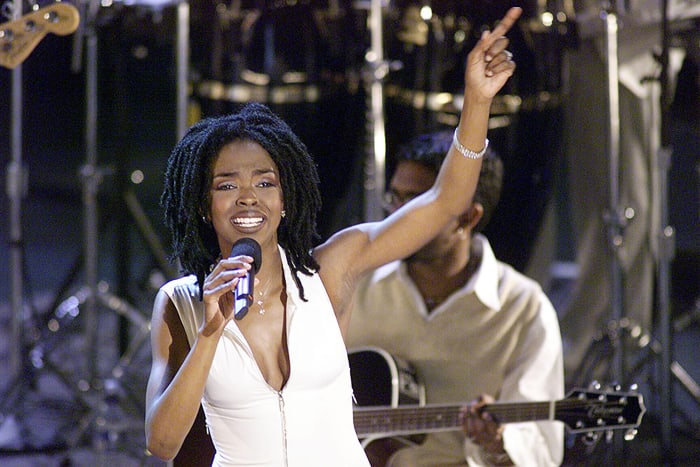
Lauryn Hill was already a star before it was announced that she'd be releasing a solo album outside of The Fugees, as her undeniable presence on tracks "Killing Me Softly" and "Ready or Not" effectively made the face of the group. Yet once "The Miseducation of Lauryn Hill" dropped in the summer of 1998, it felt omnipresent. It was a hip-hop soul album that spun off hits, received raves from critics, and proved just how talented Hill was as a rapper and vocalist. There had been plenty of great female MCs before her, but few could capture the mainstream audience as she did. The album picked up a boatload of Grammys, sold millions of copies, and carried the kind of cultural momentum where it seemed like Hill could pull off anything. Unfortunately, the fame was a lot to handle, and Hill retreated from the spotlight to re-invent her sound, returning in 2002 with an "MTV Unplugged" record of acoustic song sketches that confounded more than clarified Hill's artistic intent. Around this time, Hill became notorious for showing up hours late to gigs, which was generally frowned upon by both her fans and the press, forcing her to work in the shadow of that one towering LP. Stray singles would pop up from her every few years, but removed from her "Miseducation" moment, Hill's career trajectory would never be the same.
Mr. Mister "Welcome to the Real World" (1985)

Phoenix, Arizona's Mr. Mister didn't make much of a splash with their painfully '80s first single, "Hunters of the Night", which dropped in 1984. The terribly-named band wasn't much of a sensation out the gate, but people in the industry took notice, and it's reported that frontman Mister's frontman Richard Page was offered the chance to become the lead vocalist for Toto and even Chicago. Page stuck to his guns and politely turned those opportunities down, and it's a good thing he did, as Mr. Mister's second album, "Welcome to the Real World", was an unexpected mega-smash. "Broken Wings" is the kind of mid-tempo number that is universally agreeable, which is why it topped the U.S. charts. Yet even more surprising was the follow-up single "Kyrie", which pulled off the amazing two-peat of also going #1. You don't have back-to-back winners like that and not get a lot of attention, and even the boppy synth workout "Is It Love" also managed a Top Ten placement, establishing Mr. Mister as a band who had an ear pressed firmly against the radio dial.
Unfortunately, as popular as the group was, they didn't have a sound to call their own, instead falling in the generic wash of '80s pop-rock, which made releasing a follow-up album a tricky prospect, and to the shock of no one it underperformed. The band turned in a fourth full-length, but their label refused to release it, forcing them to break up. That album did get released by the group independently in 2010, but for some, their only exposure to Mr. Mister is a lyric on the Train song "Hey, Soul Sister".
Sananda Maitreya "Introducing the Hardline..." (1987)
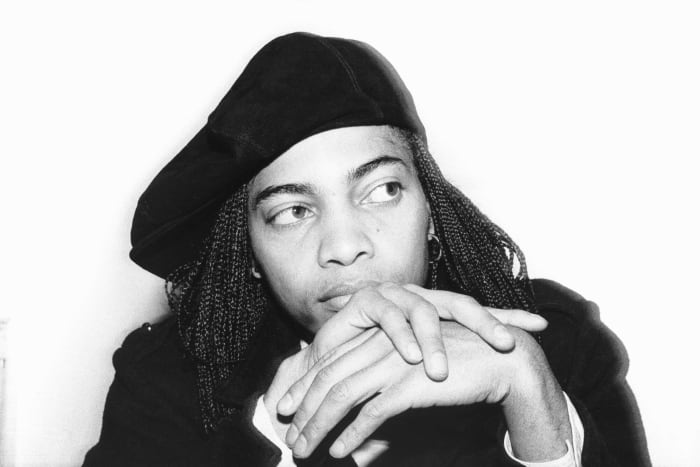
In the wake of Prince's success, several other aspiring artists wished to hit it big by using the Purple One's one-man-band approach, playing next to every instrument themselves and producing their own records to a fine polish. This is how Lenny Kravtiz started and how acts like Terrence Trent D'Arby (now known as Sananda Maitreya) rose to prominence. In Maitreya's case, their indisputably Prince-styled creations connected at a time when the "Purple Rain" star was still a chart-conquering icon, so Maitreya's tracks like "Wishing Well" connected with those seeking a hit of the illusive "Minneapolis Sound." Maitreya's claim that their debut album "Introducing the Hardline" would be the most important record released since The Beatles' "Sgt. Pepper" was a bold statement that received immediate pushback, but the album still established him as an overnight success. Their 1989 follow-up "Neither Fish Nor Flesh" got more psychedelic and experimental but failed to capture the commercial highs that "Hardline" set. They continue to create truly daring music for a cult following, but their big pop moment was just that: a moment which was come to pass.
Evan Sawdey is the Interviews Editor at PopMatters, and has written for the likes SPIN, Entertainment Weekly, and several other sites. He currently hosts the 'Worldwide Tea' International Drag Race podcast. He lives in Los Angeles with his wonderful husband and can be found on most socials @SawdEye.
More must-reads:
- 20 hated songs that were actually quite brilliant
- 'Star Trek: Nemesis' screenwriter says Data never really died
- The 20 cheesiest music videos of all time
Customize Your Newsletter
 +
+
Get the latest news and rumors, customized to your favorite sports and teams. Emailed daily. Always free!
PRIVACY POLICY COOKIE POLICY CONTACT US
ABOUT YARDBARKER TERMS OF SERVICE
By using this site, you agree to our Terms of Service and Privacy Policy.
This site is for entertainment purposes only.
There is no gambling offered on this site.
Gambling Problem? Call 1-800-Gambler.


